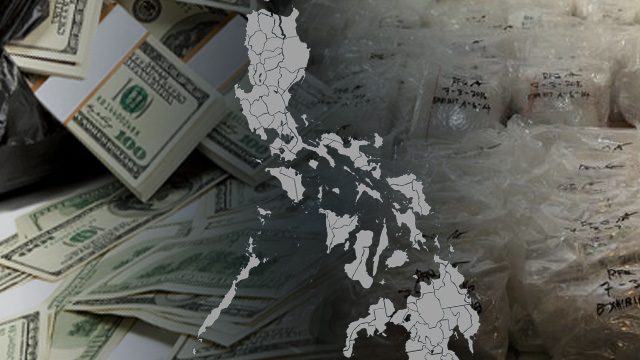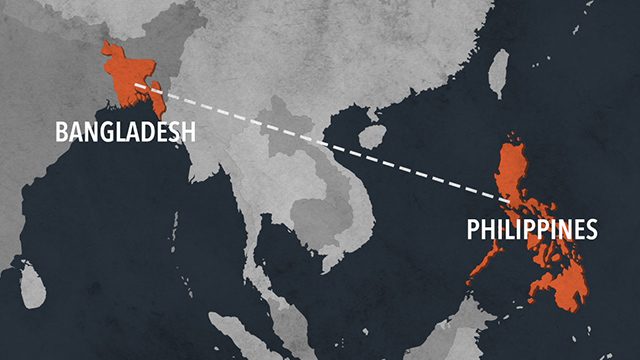SUMMARY
This is AI generated summarization, which may have errors. For context, always refer to the full article.

MANILA, Philippines – The Philippines was once again tagged as a major money laundering site by the US State Department, which cited the $81-million cyber bank heist that was coursed through the local banking system as well as the country’s “international drug trade” as reasons.
The country remains among the 88 major money laundering sites listed in the US State Department’s 2017 International Narcotics Control Strategy Report (Volume II – Money Laundering and Financial Crimes). The Philippines has been in the list since 2011.
“Money laundering is a serious concern due to the Philippines’ international narcotics trade, high degree of corruption among government officials, trafficking in persons, and the high volume of remittances from Filipinos living abroad,” the US State Department said in its report.
It said that sophisticated transnational organized crime and drug trafficking organizations use the Philippines as a drug transit country. (READ: How to safeguard the Philippines from dirty money)
“Criminal groups use the Philippine banking system, commercial enterprises, and particularly casinos, to transfer drug and other illicit proceeds from the Philippines to offshore accounts,” the US State Department said.
In 2016, the government investigated the biggest documented case of money laundering in Philippine history – where about $81 million stolen from the Bangladesh Bank’s account at the Federal Reserve Bank of New York was coursed through Rizal Commercial Banking Corporation (RCBC), converted into pesos, and then played in large casinos in the country.
Philippine authorities were not able to trace the exact location of the stolen money, citing the country’s “strict bank secrecy and weak Anti-Money Laundering Act (AMLA)” as hindrances to reach a meaningful probe.
Weak laws

For the US State Department, the non-inclusion of casinos as covered institutions in the Philippines’ AMLA “remains an especially critical concern.”
“There are significant gaps in its AML regime including the failure to appropriately regulate DNFPBs (designated non-financial business professions), such as casinos, which are at high risk for money laundering,” it added.
Senator Francis Escudero, chairman of the Senate committee on banks, financial institutions, and currencies, filed a committee report last November on putting more teeth into the AMLA, like including casinos, real estate developers, money transfer firms, junket operators, and dealers of high-value item goods under scrutiny.
Last year’s Senate probe into Bangladesh Bank’s stolen millions ended with an upset foreign envoy and hard lessons learned on how the Philippines’ banking loopholes and its flawed anti-money laundering law can put the country in a bad light.
“The current AML regime does not yet list tax evasion as a predicate crime, and covered entities do not include real estate agents and brokers and auto and art dealers. The cyber heist also exposed the vulnerability posed by weakly supervised remittance agents,” the US State Department said.
According to the report, drug trafficking remains the biggest source of illicit funds amounting to about P6.18 billion in 2014, followed by those from plunder and corruption.
“Finally, insurgent and transnational terrorist groups in the southern Philippines engage in money laundering through ties to organized crime,” the US State Department said.
While the US State Department acknowledged the Philippines’ progress in enacting laws and issuing regulations, it said limited human and financial resources constrain tighter monitoring and enforcement.
“The continuing lack of prosecutions and convictions is not surprising since only 49 cases have been filed since the AMLC began operating in October 2001,” the US State Department said.
The Philippines is also seen to be in danger of returning to the “gray list” of the Financial Action Task Force (FATF) due to the Bangladesh Bank cyber heist. – Rappler.com
Add a comment
How does this make you feel?
There are no comments yet. Add your comment to start the conversation.